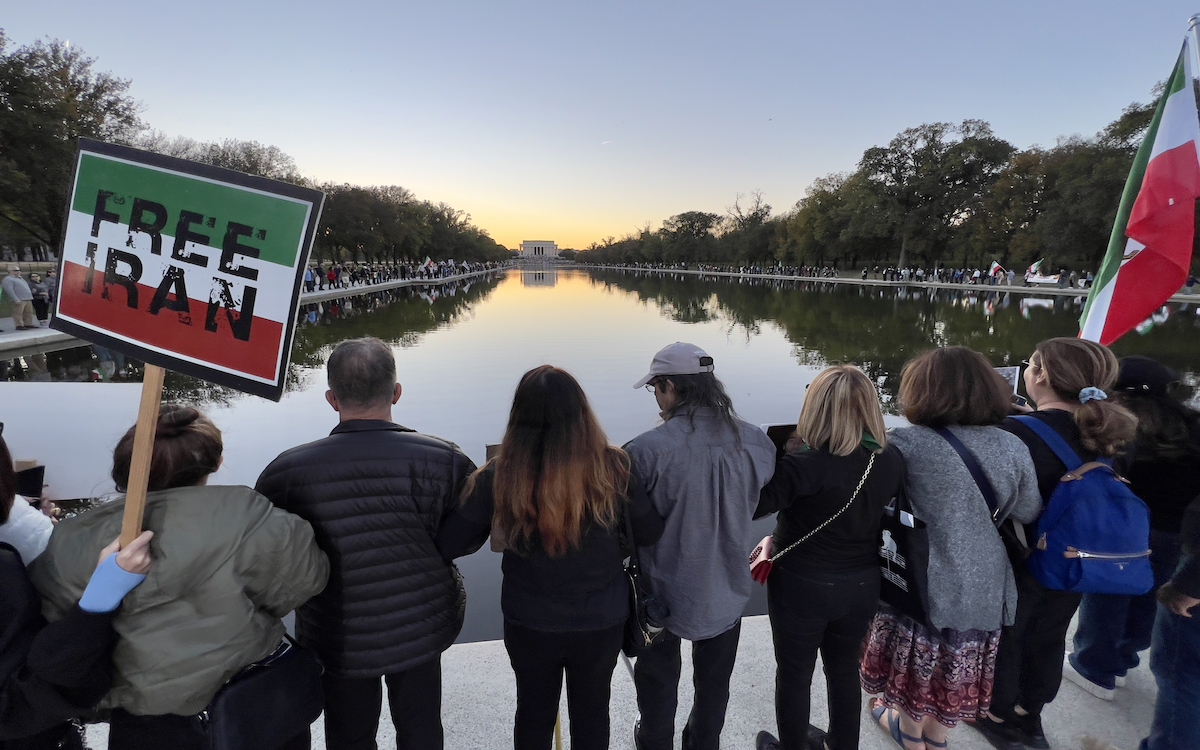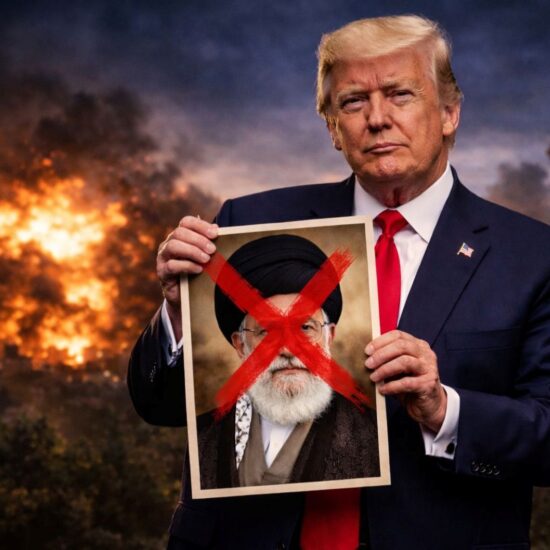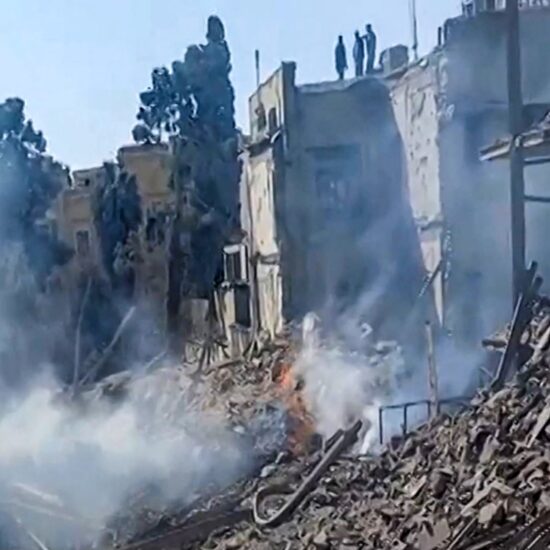
For over eight weeks, Iranians have been protesting throughout the country, demanding the downfall of the regime following the death of Iranian-Kurd Mahsa Amini, also known in her native Kurdish as Zhina, on September 16.
During these two months of protests, possibly hundreds of Iranians have been killed, with thousands more arrested – some facing the death penalty. The exact numbers are impossible to determine as the Iranian government has tried to clamp down on any information getting out of the country.
Since the protests began, the United States has been vocally supportive of the demonstrators and their calls for reforms and regime change inside the country.
However, outside of the Biden Administration’s support for the protests, the US has used traditional methods of trying to force the Iranian government to concede to the Iranian people’s demands, heavily relying on both broad and targeted sanctions, regardless of their efficacy.
“[Sanctions] won’t decrease their repression [of the Iranian people],” Arash Azizi, a PhD candidate in New York University’s history department, told NOW. “It’s like beating a numb body. What more sanctions? Iran is pretty much the most sanctioned country in world history. And, of course, it has found ways to circumvent the sanctions. The US has put a lot of sanctions on Iran and Russia and Venezuela, but guess what? They can work with each other now to circumvent the sanctions.”
Rather, activist and entrepreneur Negin Shiraghaei told NOW, the US should start listening to what the Iranian people are asking from the international community, something that the US has been slow to do.
“The way they have been interacting with the Iranian government has been like ‘Oh yeah, the government is going to do the reforms and change the country from the beginning,’” Shiraghaei explained. “But, on the ground, the Iranian people’s demands were completely the opposite.”
Sanctions upon sanctions
For the Iranian government, sanctions are nothing new.
Since the Islamic Revolution in 1979, the country and its government has been increasingly isolated from the world, with the US being at the forefront of this effort.
Up until the Russian invasion of Ukraine, Iran was the most sanctioned country in the world, boasting several thousand broad and targeted sanctions.
Despite what proponents of sanctioning Iran might argue, they do little in reality to curb the Islamic Republic’s regional and global actions, such as funding its proxies like Hezbollah in Lebanon.
“In terms of pressure at times to achieve limited goals has arguably had some success,” Azizi stated. “The question is, if it wasn’t for the sanctions, would the regime have negotiated with Obama and reached a deal or not? The Obama Administration would say no. At the same time, much harsher sanctions under Trump did not achieve its goal which was to bring the regime to the negotiating table with him.”
Sanctions have succeeded in decimating the Iranian economy and, to a certain extent, have posed some limits as to what the country is able to do domestically and internationally. But, at the end of the day, Iran has largely found ways to get around these sanctions.
On November 3, the US imposed sanctions on a Hezbollah and Iranian oil smuggling ring, which Iran used to export its oil abroad despite the vast amount of sanctions on the country’s industry.
That listening process has started but it is still not there completely. The Iranian people are not asking for the US to come and free them but they want the international community to be much smarter in dealing with the Iranians.
Azizi explained that, in some ways, the Iranian government welcomes international sanctions because it wants to keep its economy somewhat isolated from the rest of the world.
“They had an opportunity to lift all of the sanctions before all of the protests which would have been to agree to the nuclear deal,” he explained. “It’s really not that draconian in terms of the impositions on the Iranian nuclear program. But they decided not to. So it tells you that it’s really not a priority for them.”
While the Iranian government and its lobbying efforts have tried to get the US to remove some of these sanctions, particularly on its oil exports, Shiraghaei says that Iranians in the streets are not calling on these sanctions to be removed. Rather, they are focusing their anger and frustration on those they deem responsible for putting the country in the dire situation that it is in now, even calling for more targeted sanctions against individuals rather, than the broad ones that were put into place in the past.
“The new round of individual sanctions is actually something that is coming from the Iranian activist groups because it has been proven that when you’re targeting individuals, even though it sounds like it is symbolic because most of them don’t travel outside of Iran, it sends a signal to the Iranian regime’s cronies that if you’re dealing with them, there’s a possibility that you will go on that list. If you’re cooperating with them, if you’re helping them in a way, that’s a good signal to send,” she said.
Shiraghaei added that sanctions can be effective since whenever they are lifted, the Iranian government has used the money that flows in to buy more equipment that it can then use to further suppress the possibility of uprisings.
These sanctions are not enough, though, and both Azizi and Shiraghaei argue that the US needs to take further action if they truly want to help the Iranian people.
Putting an ear to the ground
Following the reelection of Mahmoud Ahmedinejad to the presidency over Mir Hossein Mousavi in 2009, many in Iran scream foul, believing that the election had been rigged so that Ahmedinejad would win.
This led to the Green Movement, which saw massive demonstrations erupt in Iran, followed by a brutal crackdown by Iranian authorities who looked to quash the uprising.
The US was too slow to get involved and lend any support to the protesters.
When new protests broke out in September 2022, the Biden Administration was keen to avoid making the same mistake, quickly claiming its support behind the protesters and their calls for change.
Unfortunately for the Iranians who have taken to the streets, that is, mostly, where the US’s effective help stops.
“The US has not quite been responding in a way we wanted it to,” Shiraghaei stated. “There has been so much effort putting in place to make sure that they don’t do the wrong thing like, for example, the Iranian government has been spending a lot of money in the last 20 years, especially after the 2009 election, in lobbying in the US.”
For its efforts, Azizi says, that the US coming out in support of the uprising so early on was a big deal, but that it could do more by helping to organize the opposition movements into a cohesive group. The groups “still lack organization and leadership but they are getting there.”
Shiraghaei went a step further in saying that the US has, for the most part, failed to listen to what the Iranian people are telling them.
“That listening process has started but it is still not there completely,” she said. “The Iranian people are not asking for the US to come and free them but they want the international community to be much smarter in dealing with the Iranians.”
“There needs to be a middle ground that they can help the Iranian people not to be brutally killed on the streets every day or imprisoned but, at the same time, allowing the Iranian people to make their own decisions and push themselves,” she added.
According to Shiraghaei, other countries in the international community, such as Germany, have been doing a better job of listening to the Iranian people, and have reacted accordingly.
Germany’s Chancellor, Olaf Scholz, has said that Iran could expect to face more EU sanctions as long as it keeps using violence to repress its people. French President Emmanuel Macron has met with members of Iran’s opposition in exile abroad.
Meanwhile, the US focuses on reacting to events on the ground in Iran and imposing further sanctions on the Iranian government for its support of Russia in the invasion of Ukraine.
Shiraghaei argues that this notion of listening to what the Iranian people are saying they actually need is hard for the US government to understand, especially since the Biden administration has tied itself to trying to restart the Iran nuclear deal.
Coming back to the negotiating table
After then-President Obama signed the Joint Comprehensive Plan of Action, more commonly known as the JCPOA or Iran nuclear deal, supporters of the agreement hailed it as a breakthrough in relations with Iran while critics said that the US was bowing to Iranian demands and that nothing would change.
Former President Donald Trump fell into that latter category, pulling the US out of the agreement.
While running for the presidency in 2020, Biden said that he would negotiate with Iran to restart the deal.
If Iran remained under the presidency of the moderate Hassan Rouhani, perhaps that could have been possible. With the election of hardliner Ebrahim Raisi, however, that task became significantly more difficult to accomplish.
One thing that they don’t understand is that what the Iranian people are asking them is not doing the mistakes that you have done before but to listen to them. They tell the world what they want but the world should listen to them. Just listen and you will get the signs from them.
Instead of the two sides sitting down and signing the same deal, Iran demanded assurances that the US would not exit the deal once more if another president who was against the agreement was sworn into office and that the IRGC be taken off of the US’s list of terror organizations – both stipulations that the Biden Administration could cede to.
For months the negotiations sat in a stalemate, going nowhere. While there were moments of progress that made it seem like a deal was still possible, after the uprising in Iran started, any hopes of finally reaching an agreement evaporated.
The US could still technically walk away from the table and the agreement for good, but the Biden Administration has yet to announce any such actions.
According to Azizi, this is not because the US is still determined to rejoin the JCPOA but because they do not have a replacement policy yet.
“Their policy was to revive the JCPOA and they haven’t had a replacement policy. What can a replacement policy be is actually a difficult question,” Azizi stated. “The obvious plan b would be a military attack on the Iranian nuclear sites but this is very difficult. If you believe Ehud Barrack, the former prime minister of Israel, it’s impossible effectively.”
Even if a deal were to be reached, it would not be under the fairly friendly relationship that Obama and Rouhani had, especially given Iran’s backing of Russia in the conflict with Ukraine.
The Iranian people, according to Shiraghaei, are not interested in a return to the JCPOA. The situation in Iran is far past a better economic situation for the people.
“One thing that they don’t understand is that what the Iranian people are asking them is not doing the mistakes that you have done before but to listen to them,” the activist stated. “They tell the world what they want but the world should listen to them. Just listen and you will get the signs from them.”
But whether or not the US chooses to listen, the streets of Iran will continue to echo with the calls of “women, life, freedom.”
Nicholas Frakes is a multimedia journalist with @NOW_leb. He tweets @nicfrakesjourno.








